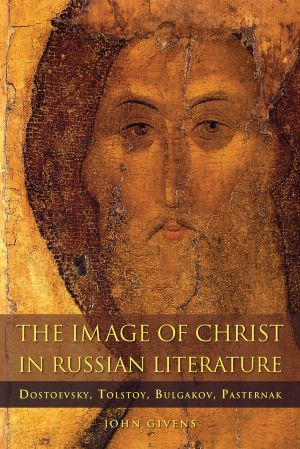The Image of Christ in Russian Literature: Dostoevsky, Tolstoy, Bulgakov, Pasternak

- Authors
- John Givens
- Publisher
- Cornell
- Tags
- religion , literary criticism , russian & former soviet union , orthodox , christianity
- Date
- 2018-05-29T13:54:21+00:00
- Size
- 1.43 MB
- Lang
- en
Vladimir Nabokov complained about the number of Dostoevsky's characters "sinning their way to Jesus." In truth, Christ is an elusive figure not only in Dostoevsky's novels, but in Russian literature as a whole. The rise of the historical critical method of biblical criticism in the nineteenth century and the growth of secularism it stimulated made an earnest affirmation of Jesus in literature highly problematic. If they affirmed Jesus too directly, writers paradoxically risked diminishing him, either by deploying faith explanations that no longer persuade in an age of skepticism or by reducing Christ to a mere argument in an ideological dispute. The writers at the heart of this study understood that to reimage Christ for their age, they had to make him known through indirect, even negative ways, lest what they say about him be mistaken for cliché, doctrine, or naïve apologetics. The Christology of Dostoevsky, Leo Tolstoy, Mikhail Bulgakov, and Boris Pasternak is thus apophatic because they deploy negative formulations (saying what God is not) in their writings about Jesus. Professions of atheism in Dostoevsky and Tolstoy's non-divine Jesus are but separate negative paths toward truer discernment of Christ. This first study in English of the image of Christ in Russian literature highlights the importance of apophaticism as a theological practice and a literary method in understanding the Russian Christ. It also emphasizes the importance of skepticism in Russian literary attitudes toward Jesus on the part of writers whose private crucibles of doubt produced some of the most provocative and enduring images of Christ in world literature. This important study will appeal to scholars and students of Orthodox Christianity and Russian literature, as well as educated general readers interested in religion and nineteenth-century Russian novels.